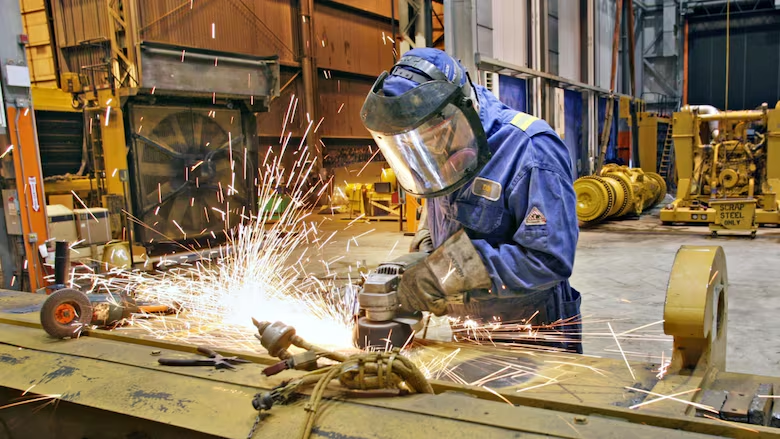Alberta wages almost 25% higher than Canadian average
Economists, politicians and business leaders seek ways to bring wages down

Springtime is typically oilpatch bonus season. As the grass turns green, car dealerships and upscale stores tend to get busier.
This year is different. Bonuses — if they exist at all — are expected to be small. Wages have been frozen. Oilpatch workers are happy to have a job at all.
And that's the private sector. Public sector workers, like teachers and nurses, are on high alert as the provincial government makes noises about their pay. Alberta's premier, however, has said he does not plan to reopen contracts.
Our worker costs are very high and it makes us less competitive— Charlie Fischer, former chief executive, Nexen.
Economists are saying that Albertans have a problem: they make too much money. And not only is it unaffordable, it's hurting the province's competitive position in the global marketplace.
According to Statistics Canada numbers out last week, the average weekly wage in Alberta was $1,163 last year, 23 per cent higher than the national average. The median household income in the province is close to $100,000.
Money not there anymore
"You're not going to fix it overnight," says Glen Hodgson, chief economist at the Conference Board of Canada.
"It's happened over a decade, with having nominal wage increases or bonuses that are one or two per cent higher than everyone else, just accumulated over time," he said.
- Jim Prentice wresting control of labour contracts, unions say
- Cenovus loss widens to $472 million as oil company slashes spending plan
"There's pressure right now for firms and governments to get their compensation under control because the revenues aren't there anymore."
Hodgson was presenting the Conference Board's economic outlook for Western Canada, one in which he predicts Alberta will slip into recession this year and eke out 1.2 per cent growth in 2016.
Until this year, Alberta's economy was growing at a fast clip: between 4.5 per cent and five per cent a year. That's what pushed wages up in the first place, said Gil McGowan, president of the Alberta Federation of Labour.
"Wages are the only way that ordinary people get their share of the pie," he said.
"If people believe in markets — and I would point out that labour markets are markets — they shouldn't be just accepting the fact that we have higher wages, but lauding the fact that we have higher wages, because it means that the market is working."
Private vs. public sector
Alberta's provincial government is preparing its budget for the next fiscal year, a budget that will have a $7-billion hole because of lower energy prices.
Alberta Premier Jim Prentice has been sounding the drum on wages, saying that the public sector earns too much.
Public sector unions counter that argument by saying that wages need to be competitive with the private sector.
But those wages are also expected to come down.
"We're seeing corporations this year with no wage increases, you're seeing layoffs, which brings down wages," said Charlie Fischer, former chief executive of energy giant Nexen.
"There are lots of ways to make sure you make your employees feel that you're working with them trying to sustain their jobs. People would rather have a job with a little less pay than no job," he added.